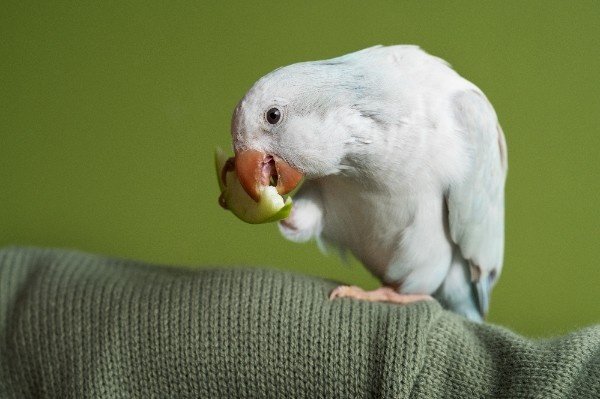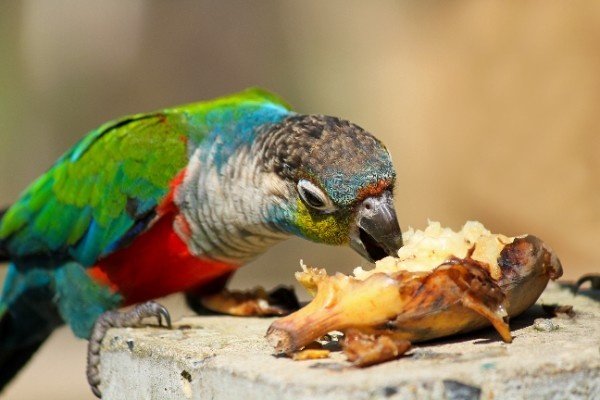Parrots are not only vibrant and intelligent pets but also have unique dietary needs that are crucial for their health and well-being. Understanding what a does parrot eat helps ensure they live a long and healthy life. In this guide, we’ll explore the essential components of a parrot’s diet, including their favorite foods, recommended nutrition, and tips for maintaining a balanced diet.
If you’re interested in learning more about the care and nutrition of other pets, you can find a variety of articles on different pets on our blog.
Essential Diet Components for Parrots
1. Pellets
A parrot’s diet consists primarily of pellets. They are made to give parrots the right balance of nutrients they need. A variety of vitamins, minerals, and essential amino acids ought to be present in high-quality pellets. Due to the fact that they guarantee that parrots receive the appropriate nutrition in each bite, avian veterinarians frequently recommend them.
2. Fresh Fruits and Vegetables
Fresh produce is a must when considering what does a parrot eat. Essential vitamins and antioxidants can be found in vegetables like bell peppers, carrots, spinach, apples, and bananas. Avocado is toxic to parrots, so you should not feed it to them. Foods grown from the ground ought to be washed completely and sliced into sensible pieces to forestall stifling.
3. Seeds and Nuts
Seeds and nuts are loved by parrots and should be remembered for feeding routines with some restraint. While they are a good source of fat and protein, seeds can be high in fat and weight gain when handled frequently. Almonds and walnuts, which are also beneficial, should be given in moderation and without salt. Moderation is key when determining what does a parrot eat.
4. Grains and Legumes
Protein and fiber can be found in abundance in cooked legumes and grains. It is possible to feed your parrot lentils, quinoa, and brown rice. Make sure these are cooked with no added salt or spices because these can be harmful to parrots.
5. Water
All pets, including parrots, require clean, new water. Ensure your parrot has access to water at all times and transform it day to day to keep it clean.

Tips for a Balanced Parrot Diet
- Variety is Key: Make sure your parrot gets a wide range of nutrients by providing a variety of foods. Additionally, it helps keep their diet interesting.
- Monitor Portion Sizes: To avoid overeating, monitor portion sizes. Obesity and its associated health problems can be avoided with a healthy diet.
- Avoid Processed Foods: Sugary or processed foods should not be given to your parrot because they can cause health issues like diabetes and liver disease.
- Consult an Avian Veterinarian: An avian veterinarian can check your parrot’s diet on a regular basis to make sure it meets its nutritional requirements. They can give you specific advice based on the species, age, and health of your parrot.
Conclusion
Providing a well-rounded diet is essential for keeping your parrot healthy and happy. By understanding what does a parrot eat and offering a mix of pellets, fresh fruits and vegetables, seeds and nuts, grains and legumes, and freshwater, you can ensure that your feathered friend gets the nutrients they need to thrive. Remember to monitor their diet regularly and consult with a veterinarian to address any specific dietary concerns.
